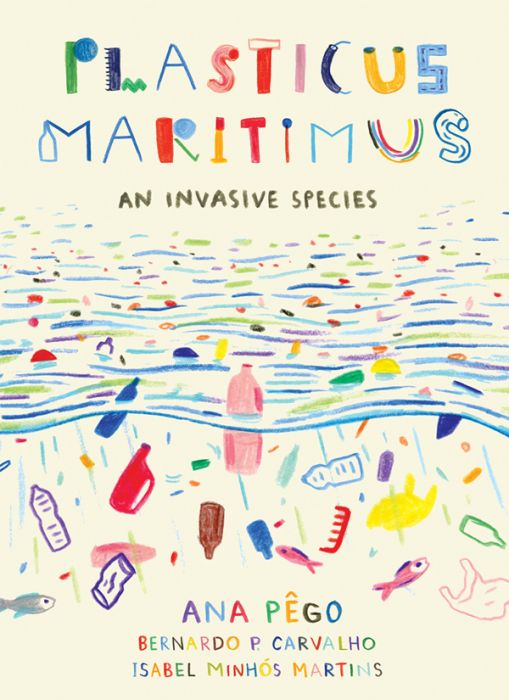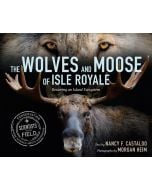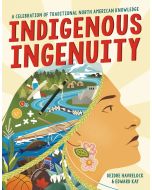
Plasticus Maritimus : An Invasive Species
By Ana Pego, Isabel Minhos
Illustrators
Illustrated by Bernardo P. Carvalho
Edition
By Ana Pego, Isabel Minhos
Hardcover edition
Publisher Greystone Books Imprint Greystone Kids ISBN9781771646437
Plasticus Maritimus : An Invasive Species
 12.5
12.5
Out of stock
SKU
9781771646437J
When she was young, biologist Ana Pêgo didn’t play in a backyard, but on a beach. She walked along the shore, looked at tide pools, and collected fossils. As she grew older, Pêgo noticed a new species at the seaside: plastic. She decided to collect it, study it, and give it a Latin name—Plasticus maritimus—to warn people of its dangers to our planet.
Inspired by Pêgo’s life’s work, and filled with engaging science and colorful photographs, this foundational look at ocean plastics explains why they are such an urgent contemporary issue. Pêgo tells us how plastics end up in our rivers, lakes, and oceans, shares plastic’s chemical composition and physical properties, and offers a field guide to help readers identify and understand this new invasive species in all its forms, from the obvious (fishing nets and water bottles) to the unfamiliar (tiny, clear particles called microplastics). Finally, she offers a critical look at our current “solutions” to plastic contamination and in her most important proposal—REVOLUTIONIZE—calls for deep changes in our habits, motivating young and old alike to make a difference, together. An artificial and almost indestructible species, Plasticus maritimus deserves to have its days numbered! Together, we can send it packing.
Inspired by Pêgo’s life’s work, and filled with engaging science and colorful photographs, this foundational look at ocean plastics explains why they are such an urgent contemporary issue. Pêgo tells us how plastics end up in our rivers, lakes, and oceans, shares plastic’s chemical composition and physical properties, and offers a field guide to help readers identify and understand this new invasive species in all its forms, from the obvious (fishing nets and water bottles) to the unfamiliar (tiny, clear particles called microplastics). Finally, she offers a critical look at our current “solutions” to plastic contamination and in her most important proposal—REVOLUTIONIZE—calls for deep changes in our habits, motivating young and old alike to make a difference, together. An artificial and almost indestructible species, Plasticus maritimus deserves to have its days numbered! Together, we can send it packing.
Resources. Sources. Full-color photographs and illustrations.
|
Standard MARC Records Cover Art |
Nonfiction Middle Plus (Grades 5-8)
Nonfiction Middle Plus
Nonfiction Middle Plus (Grades 5-8)
For Grades 5-8
This collection provides an exciting lineup of nonfiction books that captivate young learners with intriguing subjects in history, science, biographies, and more. Perfect for research projects, classroom support, or independent exploration, these selections will keep inquisitive readers engaged month after month.
14 books per Year
$299.32 per Year
Interests
Biographies, History, Nonfiction, Science/STEAM









